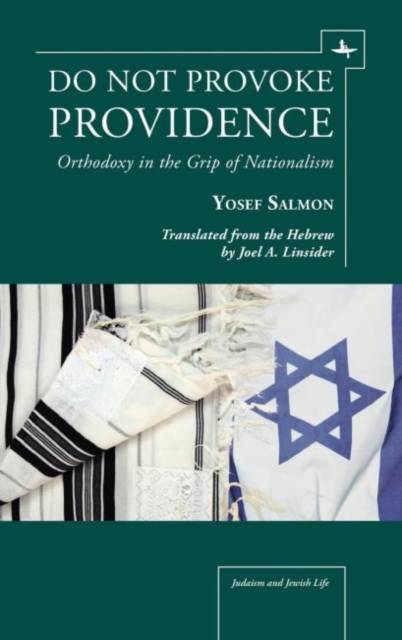
Bedankt voor het vertrouwen het afgelopen jaar! Om jou te bedanken bieden we GRATIS verzending (in België) aan op alles gedurende de hele maand januari.
- Afhalen na 1 uur in een winkel met voorraad
- In januari gratis thuislevering in België
- Ruim aanbod met 7 miljoen producten
Bedankt voor het vertrouwen het afgelopen jaar! Om jou te bedanken bieden we GRATIS verzending (in België) aan op alles gedurende de hele maand januari.
- Afhalen na 1 uur in een winkel met voorraad
- In januari gratis thuislevering in België
- Ruim aanbod met 7 miljoen producten
Zoeken
Omschrijving
Do Not Provoke Providence: Orthodoxy in the Grip of Nationalism deals with the whole complex of relations between the Land of Israel, the Jewish Torah, and the People of Israel from the Pre-Zionist Period until the establishment of the State of Israel. The book examines the dynamics of those relations through the modernization of Jewish society, and the problem of Jewish Identity vis-a-vis modernity. The discussion follows historical events in both philosophy and everyday life. It explores the anti-Zionist sphere and also discusses the attitudes toward the conflict of religion and nationalism in the world of Religious Zionism. The dispute between advocates of a religious concept of the community and proponents of a secular nation revolved primarily around perceptions of the ideal relationship between the religious and national entities. One group sought to make religion a tool of the nation; the other sought to make the nation a tool of religion.
Specificaties
Betrokkenen
- Auteur(s):
- Vertaler(s):
- Uitgeverij:
Inhoud
- Aantal bladzijden:
- 450
- Taal:
- Engels
- Reeks:
Eigenschappen
- Productcode (EAN):
- 9781936235629
- Verschijningsdatum:
- 15/11/2013
- Uitvoering:
- Hardcover
- Formaat:
- Genaaid
- Afmetingen:
- 156 mm x 234 mm
- Gewicht:
- 775 g

Alleen bij Standaard Boekhandel
+ 447 punten op je klantenkaart van Standaard Boekhandel
Beoordelingen
We publiceren alleen reviews die voldoen aan de voorwaarden voor reviews. Bekijk onze voorwaarden voor reviews.









